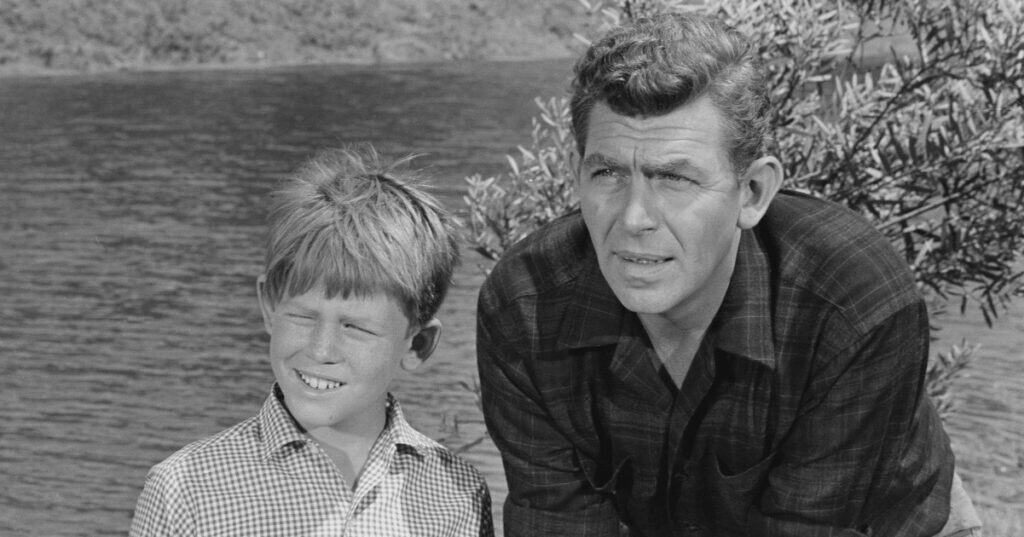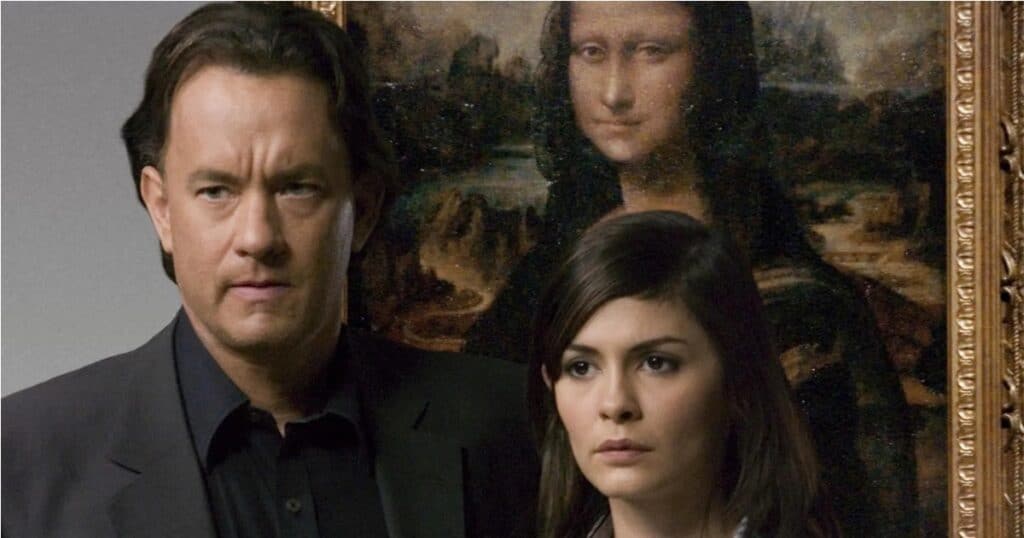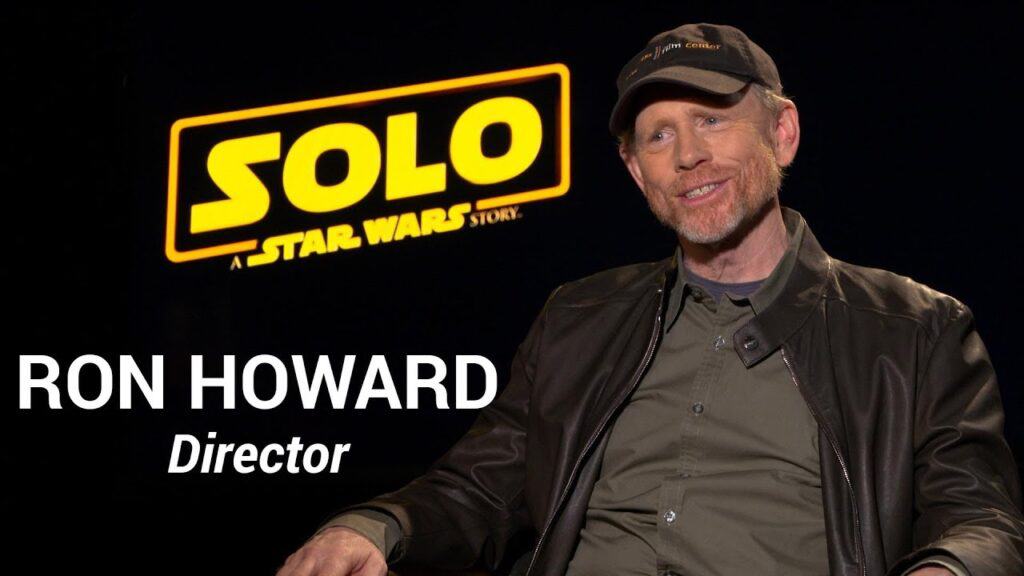Realizing they needed a voice over actor to provide the narration for a new show in development called Arrested Development, producer Ron Howard looked around the empty recording studio, finding no voice over actor in sight. So this Oscar winning former child star stepped in to provide a temporary voice track, you know just as a filler until they could find a better voice, of course. But a better voice never came because Ron Howard’s comforting and gentle tone mixed with a dry yet kinda goofy speech pattern was the perfect fit for the sense of humor of this show. But this was not the only time Ron Howard stepped up and became an unexpected perfect fit, he’s been doing that all his life – from being in front of the camera in classic TV shows and behind the camera for a hefty handful of wonderful motion pictures… and more! But nowadays is his career in arrested development?
Whenever I watch a Ron Howard picture, I always play a little game. I like to call this game Spot the Clint Howard! As Ronnie Boy has given cameo appearances to his troubled yet beloved brother Clint in nearly every film he has made. Can you spot the Clint Howard? His films always use his brother and he always changes up the genre. Bouncing around from historical epics to light hearted comedies to heart breaking dramas and he excels in them all. A true professional who proved to Hollywood he was meant for more than just sitcoms. But is he still producing works of art that live up to his days as a Oscar winning box office champ? Or are those happy days of exciting cinematic achievements behind him? Do we need to throw old man Opie in a pool full of Cocoon fountain of youth magic? Is he caught in some sort of arrested development? Ron Howard had been called nicest fella in Hollywood–a living, breathing embodiment of “Aw, shucks!” but have those “aw, shucks” turned to to “ah what the f*cks”? Let’s find out: WTF Happened to… RON HOWARD?
To truly understand what the fuck happened to Ron Howard, we go back to the beginning. And the beginning began when he was born on March 1st, 1954 in Duncan, Oklahoma, the son of an actress and an actor. As such, Howard was lumped into their productions whenever a baby was needed, even making his acting debut at just 16 months old in Frontier Woman, which co-starred his father.

In the late ‘50s, Howard appeared in a slew of staple programming: season one of The Twilight Zone, a six-episode go on Dennis the Menace, four episodes on The Many Loves of Dobie Gillis, and so many more. The following year, he landed his breakout role of Opie Taylor on The Andy Griffith Show. It was here that he learned about work ethic on a set and it was just one year after the show ended that, at 15, that Ron Howard decided he wanted to be a director. Howard continued his acting career, however, turning up in generation-defining programs of their time: Route 66, Dr. Kildare, The Fugitive, M*A*S*H, and so many more. There, too, were parts in The Music Man (1962), The Courtship of Eddie’s Father (1963) and The Wild Country (1970) and it was the director of The Wild Country Robert Totten who encouraged Ron Howard to actually become a film director, when most everyone else looked at this former child star and thought “oh you want to direct too? that’s adorable”, Director Robert Totten just looked at young Ronnie and said, “well what are you waiting for?”
1972 instead brought Love, American Style, which spun off into Happy Days (1974), in which he played Richie Cunningham. He left in 1980 after the seventh season so he could focus on directing. During this time, there were roles in Happy Mother’s Day and Love George (all 1973), 1974’s The Spikes Gang. There was also American Graffiti, George Lucas’ pre Star Wars coming of age masterpiece that I like to call “arthouse Happy Days”, where I am sure Ron Howard picked up a few directing tips from a young Lucas. Funny enough Howard would eventually get to direct his own Star Wars movie decades later. 1976 brought The Shootist where he worked alongside the legendary John Wayne and the flick Eat My Dust!, which he told Roger Corman he’d only do if he could direct immediately after. And in 1977, he did, leading Grand Theft Auto (which started filming the day after he turned 23), which he co-wrote and even cast himself in the lead. Considering it was produced by Corman–who helped launch Coppola, Scorsese, Demme, etc.–it was a promising job. And has nothing to do with the video game…. yet.
Next, Howard was back on TV–this time directing: 1978’s Cotton Candy and 1980’s Skyward (starring Hollywood royalty Bette Davis). The next year, he got his first star on the Hollywood Walk of Fame. It was time for his first true breakout as director: 1982’s Night Shift, which helped Michael Keaton reach stardom. But it was 1984’s mermaid love story Splash that swam to the top of the box office, opening at #1 and grossed $62.6 million. In 1985, Howard earned a surprise DGA nod for Cocoon (which has mysteriously vanished from pop culture), picking up when Robert Zemeckis was fired. Praised for his tenderness to the story–which could have been over-the-top–it was a perfect demonstration of his soon-to-be trademark style of accessible yet brilliant schmaltz. That same year, he co-founded Imagine Entertainment with Brian Grazer, also marking Howard as a
power player in Hollywood… which coincided with his first flop, 1986’s Gung Ho, his most widely panned major release up to that point. The ‘80s ended with Willow–brought on by George Lucas himself –which was another major hit for Howard with $57 million at the box office. 1989 saw the family drama comedy Parenthood. It was also the first movie of his to cross $100 million.
1991 saw Howard branching out into the thriller genre with firefighter picture Backdraft; and it was easily one of his biggest hits, $152 million. Even becoming a ride at Universal Studios! The next year brought a semi western starring Tom Cruise and Nicole Kidman in the underrated critical flop Far and Away, where Howard got to direct some epic sequences. But Howard would rebound with 1994’s The Paper, earning nearly unanimous praise and showing
he had far more maturity in his projects than expected. His next project would take him to the moon–almost. Released in 1995, Apollo 13 was a technical marvel and one of the finest directorial achievements of its time. Backed by a wealth of research, Howard further demonstrated his grasp on the dramatic and family dynamics and tension building suspense. He would earn a Golden Globe nod and a DGA win but was unjustly overlooked for an Oscar nod, becoming only the second person ever snubbed after a DGA award.
Howard kept with the drama, directing the intense Mel Gibson starring Ransom (1996), which was unexpected for the hunky-dory, self-proclaimed “optimistic” Howard, who once said, “I don’t need to be tough.” But as Grazer put it, “Inside is a very complex, very competitive person who has darkness and pain. He just doesn’t show it to people.” Aaaaand this would be buried next with 1999’s EDTV, which is a fun comedy the pokes fun at reality TV before that was really
a thing and gets wrongfully compared to the obviously far superior The Truman Show. But a draw he still was, as 2000 brought Ron Howard’s best opening weekend up to that point ($55 million) with How the Grinch Stole Christmas, which had a total worldwide haul of $345 million, making it the highest-grossing movie of the year. It was now time for his long-awaited Oscar glory, taking home Best Director and Best Picture for 2001’s A Beautiful Mind.

Howard would have to develop some really thick skin for 2006’s The Da Vinci Code, which arrived after heavy-handed western The Missing (2003, the same year he got a Medal of Arts) and Cinderella Man (2005). It’s a great boxing flick but is also obvious Oscar bait – basically the worst parts of A Beautiful Mind are cranked up in this one. Although the Da Vinci Code adaptation was the second highest-grossing movie of the year ($760 million worldwide), it was universally slammed by critics and landed Howard a Worst Director Razzie nod. For Howard, it was “frustrating” and “disappointing” since he’s “the type of person that likes to please everyone.” He pulled this off far better with 2008’s Frost/Nixon, an intimate two-man show that earned some of his highest praise yet. And then he fell again with Da Vinci Code follow-up Angels & Demons, another critical flop – as was 2016’s Inferno, another damn Da Vinci Code sequel that I totally forgot existed.
Howard returned to straight comedy (sort of, since it wasn’t very funny) with The Dilemma (2011), which the director and stars brought zero energy to. Although he would surprise us all again with the masterpiece Rush, a thrilling picture with exhilarating racing sequences, at first I thought this was just going to be a basic race car movie but i think it ended up on the IMDb top 250 at one point. This was Howard just about hitting his pinnacle, the wave of which he rode into
historical adventure pic, the true story that inspired Moby Dick, titled In the Heart of the Sea in 2015, the same year he earned a rare second star on the Hollywood Walk of Fame.
After helming one of the finest docs about a rock band ever, The Beatles: Eight Days a Week (2016), Howard replaced Phil Lord and Christopher Miller on Solo: A Star Wars Story (2018). But this sloppy Star Wars flick was not a smash hit and kinda ruined the franchise, grossing just $214 domestically and marking the first time that Howard attacked
moviegoers themselves, blaming “aggressive trolling” for its performance. The rejection would continue with 2020’s Hillbilly Elegy, earning him yet another Worst Director Razzie nod. Directing Glenn Close in a performance that was nominated for an Oscar and a Razzie so that kinda says it all right there. Howard would redirect, diving into another real-life drama about the cave rescue of a soccer team with Thirteen Lives (2022). It hear it was fine.
On the next episode of Ron Howard’s life… Ron Howard finds himself playing it safe, while also trying something new at the same time – imagine that: he’ll helm his first animated feature, The Shrinking of Treehorn and direct a doc on Jim Henson. Both of these just seem so…basic. But that’s kind of who Ron Howard is. Basic… well I guess a better word would be safe… or an even better word would be reliable. And sometimes that’s exactly what a film needs, a safe reliable confident experienced director especially during his heyday. But it would be nice to see Mr. Howard shake thing up a bit and challenge himself again… since he has proven to be gifted in pretty much every category at your local video rental store. He doesn’t really have a style, Ron develops a new voice and vision with every new film, depending on what the story demands, no matter the genre; very few artists can say that. So nobody should give a f*ck about what the f*ck happened to Ron Howard cuz he’s doing just fine.
And his daughter Bryce Dallas Howard has proven herself to be a gifted and hard working actress and director herself. He should be proud.





















Follow the JOBLO MOVIE NETWORK
Follow us on YOUTUBE
Follow ARROW IN THE HEAD
Follow AITH on YOUTUBE